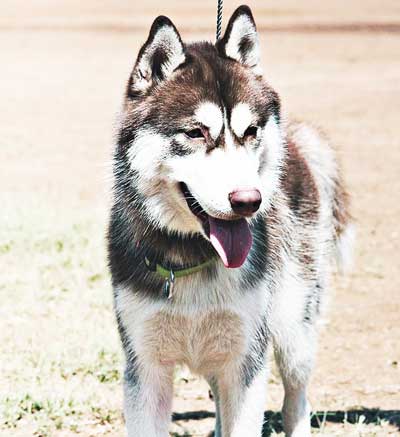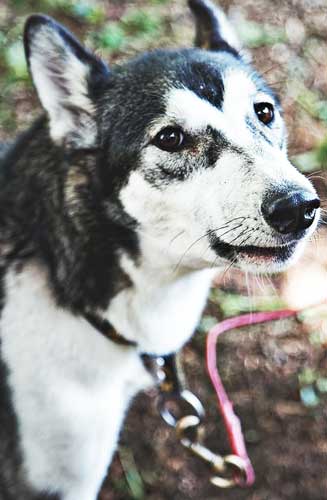If you have a husky, chances are you’ve heard them whine for no apparent reason. It can be confusing and frustrating when your normally happy pup suddenly starts to vocalize their displeasure in such an obvious way. But why do huskies whine? Understanding the reasons behind this behavior can help us figure out how to best address it. A husky whining for no reason is not as uncommon as you may think.
In this blog post, we’ll take a look at some of the most common causes of husky crying and howling and tips on how to stop it from happening so frequently. We’ll also discuss what types of behavior could indicate that something more serious is going on with your pup and when you should seek professional help for their issues. So read on if you’ve been wondering why your husky keeps whining!
Why is my Husky whining and howling?
One of the most common reasons for husky whining is boredom. If your pup isn’t getting enough physical and mental stimulation, they can become restless and start to vocalize their discontentment. To help alleviate this problem, make sure your dog has plenty of toys to keep them entertained and engage in some interactive play with them regularly. You may also want to consider taking them on daily walks or runs to expend energy and explore new places.
Here are 10 reasons why your husky might be whining:
- Separation anxiety
- Fear or insecurity
- Physiological needs (hunger, thirst, etc.)
- Boredom
- Being in a new environment
- Not being exercised enough
- Pain or illness
- An unfamiliar person or animal nearby
- A change in routine
- Attention-seeking behavior.
How to Stop My Husky’s Whining?

Fortunately, there are several things you can do to stop your husky’s whining. Here are some tips that might help:
- Respond calmly – When your husky starts to whine and howl, try not to overreact by yelling or scolding them. This won’t solve the problem and can make them even more anxious. Instead, respond to their whining in a calm and soothing manner by speaking softly and using positive reinforcement when they stop.
- Provide plenty of attention – Make sure your pup gets plenty of quality time with you every day so that they know they are loved and valued. This will help reduce feelings of insecurity which can often lead to whining or howling.
- Give them enough exercise – Exercise is essential for huskies as it helps burn off excess energy and reduces stress levels which could be causing the whines or howls in the first place. Take your pup on walks, runs, hikes or play games like fetch with them daily to keep them entertained and healthy!
- Distract them – If your husky is whining or howling in response to something, try to distract them with another activity. For example, if they start yelping when you leave the house, give them a chew toy or Kong filled with treats before you go.
- Seek professional advice – If none of the above tips seem to work and your pup’s whining and howling persists, it may be time to seek professional help from an animal behaviorist or pet psychologist. They can provide customized advice on addressing any underlying issues that could be causing the behavior.
Do Siberian Huskies whine a lot?
Siberian Huskies can be prone to whining and howling, especially if they are bored or not getting enough exercise. Understanding the root cause of the behavior can help you find ways to reduce or eliminate it. Providing plenty of attention, exercise and distractions, along with seeking professional advice when necessary are all effective strategies for managing husky whining.
Ultimately, while huskies may whine more than other breeds, with patience and understanding you can help them become quieter and calmer companions. With time, care and training they will learn to trust that they are safe and secure in their environment and won’t feel the need to vocalize their discontentment so often.
With these tips in mind, we hope you’re now better equipped to handle your pup’s occasional whining! Good luck on your journey towards a quieter home life!
Do Huskies howl because they are sad?
Whining can be annoying but it doesn’t have to mean that something is wrong with your pup. By understanding why huskies whine and taking proactive steps to address the behavior, you can help make sure that your pup is happy and healthy.
Another reason why huskies may be prone to whining is separation anxiety. Huskies are a social breed that loves being around people, so if they’re left alone for too long, they may start to show signs of distress.
It’s important to provide appropriate outlets for your pup when you’re away from home, such as puzzle toys that help keep their minds occupied or a frozen Kong filled with treats. If your pup is still displaying signs of anxiety, then it may be best to talk to your veterinarian or an animal behaviorist for more advice on how to address this issue.
Finally, huskies can also whine if they’re feeling uncomfortable due to physical pain or illness. It’s important to take them in for regular check-ups at the vet and pay attention to any changes in their behavior that could indicate they’re not feeling well. Also, always make sure they have access to clean water and healthy food so that they stay nourished and don’t experience any internal discomfort.
To conclude
In summary, while huskies may be more prone to whining than other breeds, it doesn’t have to mean something is wrong with your pup. With patience and understanding, you can help them become quieter and calmer companions. Make sure they get plenty of exercise and attention, provide suitable distractions when you’re away from home, seek professional advice if needed and always look out for signs of physical pain or illness so that you can take action quickly if necessary. Taking these steps will help ensure your furry friend has a happy, healthy life!
